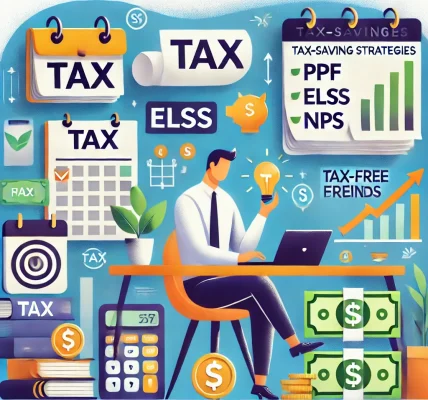Introduction
As a small business owner, every dollar counts. One of the most effective ways to increase profitability and keep more of your hard-earned money is by maximizing tax deductions. The IRS allows small businesses to deduct a wide range of expenses, reducing taxable income and lowering the overall tax burden.
However, many entrepreneurs fail to take full advantage of these deductions due to a lack of awareness or poor record-keeping. This DIY tax guide will help you understand the most valuable small business tax deductions, how to claim them properly, and legal ways to reduce your tax bill.
1. What Are Small Business Tax Deductions?
A tax deduction (also called a business expense write-off) is a cost incurred in the ordinary course of running a business that the IRS allows you to subtract from your revenue before calculating taxable income.
For an expense to be deductible, it must be:
- Ordinary – Commonly accepted in your industry.
- Necessary – Helpful and appropriate for your business.
By identifying and claiming all eligible deductions, you can significantly reduce your taxable income and maximize savings.
2. Top Small Business Tax Deductions
1. Home Office Deduction
If you use part of your home exclusively for business, you may qualify for the home office deduction.
How to Calculate:
- Simplified Method: Deduct $5 per square foot (up to 300 square feet, max $1,500).
- Regular Method: Deduct a percentage of mortgage interest, rent, utilities, and maintenance costs.
Tip: Keep records of your home office expenses and ensure your space is used only for business purposes.
2. Business Vehicle Expenses
If you use your car for business purposes, you can deduct related expenses.
Deduction Methods:
- Standard Mileage Rate: Deduct 67 cents per mile (2024 rate).
- Actual Expenses: Deduct fuel, maintenance, insurance, lease payments, and depreciation.
Tip: Keep a mileage log to separate business and personal use.
3. Office Supplies & Equipment
Expenses related to office supplies, computers, printers, and furniture are fully deductible.
- Office supplies: Pens, paper, ink, etc.
- Business equipment: Laptops, phones, cameras.
- Furniture: Desks, chairs, filing cabinets.
Tip: Keep receipts and track purchases made exclusively for business.
4. Advertising & Marketing
Promoting your business is essential, and advertising expenses are fully deductible. These include:
- Website costs: Domain, hosting, and SEO services.
- Social media ads: Facebook, Google Ads, LinkedIn promotions.
- Print and media ads: Flyers, business cards, radio ads.
Tip: Keep a record of your marketing campaigns to track ROI and deductions.
5. Employee & Contractor Wages
Payments to employees and independent contractors are deductible, including:
- Salaries & wages.
- Payroll taxes.
- Bonuses & commissions.
- Freelancers & consultant fees (1099 contractors).
Tip: Issue W-2s for employees and 1099s for contractors to remain compliant.
6. Business Meals & Entertainment
You can deduct 50% of meal expenses when dining with clients, partners, or employees for business purposes.
Requirements:
- The meal must be business-related.
- Keep receipts & notes about the meeting.
Tip: Avoid excessive meal deductions to prevent IRS red flags.
7. Business Travel Expenses
Traveling for business? You can deduct expenses such as:
- Airfare & transportation.
- Hotel & lodging.
- Meals (50% deductible).
- Conference & seminar fees.
Tip: Travel must be primarily for business, not personal vacations.
8. Insurance Premiums
Business insurance costs are deductible, including:
- General liability insurance.
- Professional liability insurance.
- Workers’ compensation insurance.
- Health insurance premiums for self-employed individuals.
Tip: Maintain insurance records and premium payment receipts.
9. Rent & Utilities
If you rent office space, warehouse, or co-working space, these costs are fully deductible. Also, utilities like:
- Electricity & water.
- Internet & phone bills.
- Heating & cooling.
Tip: Even if working from home, business-related utilities may be partially deductible.
10. Education & Professional Development
Investing in education helps grow your business and is deductible, including:
- Online courses & webinars.
- Business books & magazines.
- Industry conferences & workshops.
- Certifications & training.
Tip: Courses must be relevant to your current business, not a new career.
3. How to Properly Claim Deductions
1. Keep Accurate Records
- Use bookkeeping software like QuickBooks or FreshBooks.
- Store receipts, invoices, and bank statements.
- Separate business & personal expenses.
2. File the Right Tax Forms
- Sole Proprietors & Single-Member LLCs: Report expenses on Schedule C (Form 1040).
- Partnerships & Multi-Member LLCs: File Form 1065.
- Corporations (S-Corp & C-Corp): File Form 1120 or 1120S.
3. Avoid Common Mistakes
- Don’t mix personal & business expenses.
- Keep receipts for all deductions.
- Avoid claiming excessive deductions, which can trigger audits.
4. Bonus: Small Business Tax Credits
While deductions reduce taxable income, tax credits provide a dollar-for-dollar tax reduction. Examples include:
- Small Business Health Care Tax Credit (for providing employee health insurance).
- Work Opportunity Tax Credit (WOTC) (for hiring disadvantaged employees).
- Research & Development (R&D) Tax Credit (for innovation & product development).
Conclusion
Maximizing tax deductions is key to keeping more of your money and growing your business efficiently. By taking advantage of deductions, tax credits, and proper record-keeping, you can significantly reduce your tax burden.
Key Takeaways:
- Identify and claim all eligible deductions.
- Keep accurate financial records to support deductions.
- Use bookkeeping & tax software to track expenses.
- Stay compliant with IRS rules to avoid audits and penalties.




